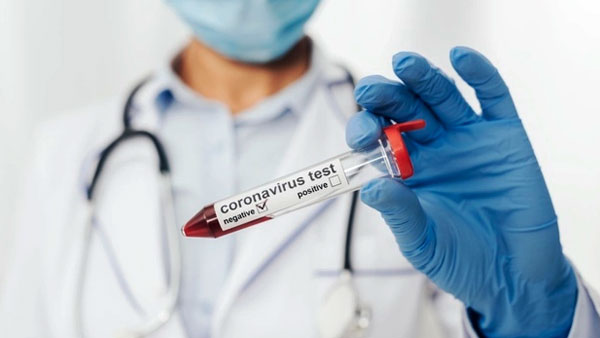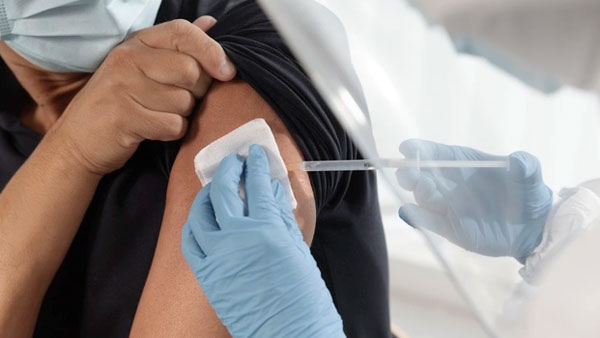Just In
- 1 hr ago

- 5 hrs ago

- 5 hrs ago

- 11 hrs ago

Don't Miss
- Movies
 LSD2 Box Office Collection Day 1 Prediction: Dibakar Banerjee’s Film To Have Slow Start; Will Fail To Touch 5C
LSD2 Box Office Collection Day 1 Prediction: Dibakar Banerjee’s Film To Have Slow Start; Will Fail To Touch 5C - Finance
 1:3 Bonus Share, Rs 13.25/Share Dividend: Buy Maharatna PSU, TP Rs 355, Fundraise Approved
1:3 Bonus Share, Rs 13.25/Share Dividend: Buy Maharatna PSU, TP Rs 355, Fundraise Approved - Sports
 Michail Antonio felt officials were against West Ham after European exit
Michail Antonio felt officials were against West Ham after European exit - News
 12 Jurors Picked For Donald Trump’s Hush Money Trial, Alternate Selection Continues
12 Jurors Picked For Donald Trump’s Hush Money Trial, Alternate Selection Continues - Automobiles
 Aprilia RS 457 Accessories: A Detailed Look At The Prices
Aprilia RS 457 Accessories: A Detailed Look At The Prices - Education
 Karnataka SSLC Result 2024 Soon, Know How to Check Through Website, SMS and Digilocker
Karnataka SSLC Result 2024 Soon, Know How to Check Through Website, SMS and Digilocker - Technology
 Nothing Ear, Ear a With ANC, Up to 42.5 Hours of Battery Launched; Check Price and Availability
Nothing Ear, Ear a With ANC, Up to 42.5 Hours of Battery Launched; Check Price and Availability - Travel
Telangana's Waterfall: A Serene Escape Into Nature's Marvels
COVID-19 Breakthrough Infection: What Are The Chances Of Being COVID Positive After Vaccination?

Credit: Freepik
SARS Cov-2 Variants, Vaccines and Breakthrough Infections
There is no better way to protect ourselves from COVID-19 and to reduce the spread of the infection rate than to vaccinate ourselves. COVID-19 vaccines have significantly reduced severe infections, deaths and hospitalisations due to severe illness. However, reports of fully vaccinated people getting infected with COVID-19 is raising questions about the ability of vaccination and challenging global vaccination efforts.
So why are people who are fully vaccinated still getting infected?
There are quite a few vaccines against the COVID-19 with reportedly greater than 90 per cent efficacy. But none provides a 100 per cent protection against the virus which is mutating and creating new variants. So, under a favourable scenario the virus breaks through the protective barrier of the vaccine and this infection is referred to as a breakthrough infection. A breakthrough infection usually arises 14 days after receiving the final dose of the vaccine.
Pathogens mutate-SARS CoV-2 the virus that cause COVID-19 infection has mutated since it was first discovered in China and created genetic variants over time-and it doesn't surprise the medical community; virus mutation is expected and as is breakthrough.
The Center for Disease Control in a weekly report claimed "Even though FDA-authorised vaccines are highly effective, breakthrough cases are expected, especially before population immunity reaches sufficient levels to further decrease transmission. However, vaccine breakthrough infections occur in only a small fraction of all vaccinated persons and account for a small percentage of all COVID-19 cases (5-8)" [1].
It's likely for a vaccinated person to get a breakthrough infection due to various reasons:
- Weak or ineffective response to immunisation cause a pathogen to breakthrough.
- Immunity provided by the vaccines can decrease over time.
- The virus evolves casing it to breakthrough.

Credit: Freepik
Breakthrough Infections in India
According to a study conducted by the Indian Council of Medical Research (ICMR) and National Institute of Virology in Pune, 86.69 per cent of breakthrough infections in India are caused by the Delta variant along with Alpha, Kappa, Delta AY.1 and Delta AY.2.
The study, titled Clinical characterization and Genomic analysis of COVID-19 breakthrough infections during second wave in different states of India," is the first such analysis on breakthrough infections. The yet to be peer-reviewed study was published on the preprint server medRxiv [2].
The researches collected 677 clinical samples from 17 states and Union Territories of individuals who had received vaccines and tested positive for COVID-19. Out of these 677 patients, 85 acquired COVID-19 infection after taking first dose of the vaccine, while 592 were infected after receiving both doses of vaccine.
This study indicated that "majority of the clinical cases in the breakthrough were infected with the Delta variant and only 9.8 per cent cases required hospitalization while fatality was observed in only 0.4 per cent cases. This clearly suggests that the vaccination does provide reduction in hospital admission and mortality."
According
to
experts
the
number
of
breakthrough
infections
is
on
expected
lines.
"The
number
of
reported
vaccination
breakthroughs
in
India
are
well
within
the
numbers
expected
from
the
total
number
of
infections,
the
fraction
of
population
that
is
vaccinated
and
the
known
reduction
in
effectiveness
of
Covishield/Covaxin
against
infections
by
Delta.
Vaccines
continue
to
protect
against
severe
disease
and
remain
a
cornerstone
of
public
health
strategy," the
India
SARS-CoV-2
Genome
Consortium
(INSACOG)
said
in
a
weekly
bulletin
[3].

Credit: Freepik
What are the Breakthrough symptoms?
According to the same study [4], a total of 482 cases (71 per cent) were symptomatic with one or more symptoms while 29 per cent had asymptomatic SARS-CoV-2 infection.
Other symptoms observed: Fever (69 per cent) was the most consistent symptom followed by body ache, headache and nausea (56 per cent), cough (45 per cent), sore throat (37 per cent), loss of smell and taste (22 per cent), diarrhoea (6 per cent), breathlessness (6 per cent) and one per cent had ocular irritation and redness.
Co-morbidities were observed in the 154 out of 677 cases which included diabetes mellitus type-II, hypertension as well as chronic cardiac, renal and pulmonary diseases and obesity [5].
What are the Chances of Getting COVID-19 After Vaccination?
All the reports in the direction of breakthrough infection indicate only a small percentage of fully vaccinated people get COVID-19; however, vaccination will protect individuals from becoming severely ill.
The New York Times report the chances of the average vaccinated American contracting Covid is "probably about one in 5,000 per day, and even lower for people who take precautions or live in a highly vaccinated community" [6].

Credit: Freepik
Things you can do to possibly avoid getting infected after vaccination:
- Keep your mask on; there is no better way to protect yourself from the virus than to wear a mask all the time when in public.
- Wash your hands, just like before vaccination.
- Don't forget your sanitiser.
- Avoid crowds, there is no harm in waiting for a while before you appear in crowded places like shopping malls or the cinema.
- Social distance; it is not a punishment, remember the pandemic isn't over.
- Follow up on your booster shots; getting a booster shot can increase your immunity against the virus [7].
Getting infected with COVID-19 has great physical repercussions. Besides, being infected of being a carrier who infected family and friends can take an emotional toll on you. It's good to remember that we're responsible for each other. Do not lower your guard post-vaccination- the virus is still around.
Vaccines make it a lot safer for you and your loved ones to live in the middle of this deadly pandemic. If you're not vaccinated, consider getting the first shot at your nearest health facility. You can receive vaccines free of cost from government health facilities. A one-time registration for COVID-19 vaccination in India can be done at https://www.cowin.gov.in.
-
 disorders cureIndia May See A Covid Surge In January, Next 40 Days Crucial; Here Is How To Protect Yourself From COVID-19
disorders cureIndia May See A Covid Surge In January, Next 40 Days Crucial; Here Is How To Protect Yourself From COVID-19 -
 disorders cureCOVID Can Trigger Parkinson's Disease: Study
disorders cureCOVID Can Trigger Parkinson's Disease: Study -
 disorders cureCommon COVID Symptoms In Fully Vaccinated Individuals: What You Should Know
disorders cureCommon COVID Symptoms In Fully Vaccinated Individuals: What You Should Know -
 wellnessMild COVID Linked To Life-Threatening Blood Clots, Increased Risk Of Cardiovascular Disease; Study
wellnessMild COVID Linked To Life-Threatening Blood Clots, Increased Risk Of Cardiovascular Disease; Study -
 wellnessCOVID-19 Variants In India: New COVID Variant May Pose Threat To Elderly People
wellnessCOVID-19 Variants In India: New COVID Variant May Pose Threat To Elderly People -
 basicsCovid-19 Linked To Early Onset Of Periods: What You Need To Know
basicsCovid-19 Linked To Early Onset Of Periods: What You Need To Know -
 wellnessCOVID XBB Variants Of Omicron In India: What You Should Know
wellnessCOVID XBB Variants Of Omicron In India: What You Should Know -
 disorders cureNew Omicron Subvariant BQ.1 Detected In Maharashtra: What You Should Know
disorders cureNew Omicron Subvariant BQ.1 Detected In Maharashtra: What You Should Know -
 disorders cureOmicron BF.7 In India, Risk Of Fresh Wave During Diwali: What You Should Know
disorders cureOmicron BF.7 In India, Risk Of Fresh Wave During Diwali: What You Should Know -
 womenPriyanka Chopra Speaks On Climate Change, COVID, Poverty At The UN Sustainable Development Goals 2022 Moment
womenPriyanka Chopra Speaks On Climate Change, COVID, Poverty At The UN Sustainable Development Goals 2022 Moment -
 wellnessCoronavirus Residues Might Be Causing Long COVID: New Study
wellnessCoronavirus Residues Might Be Causing Long COVID: New Study -
 art cultureRenowned Spanish Author Javier Marias Passes Away Due To Lung Infection Post COVID-19
art cultureRenowned Spanish Author Javier Marias Passes Away Due To Lung Infection Post COVID-19


 Click it and Unblock the Notifications
Click it and Unblock the Notifications



